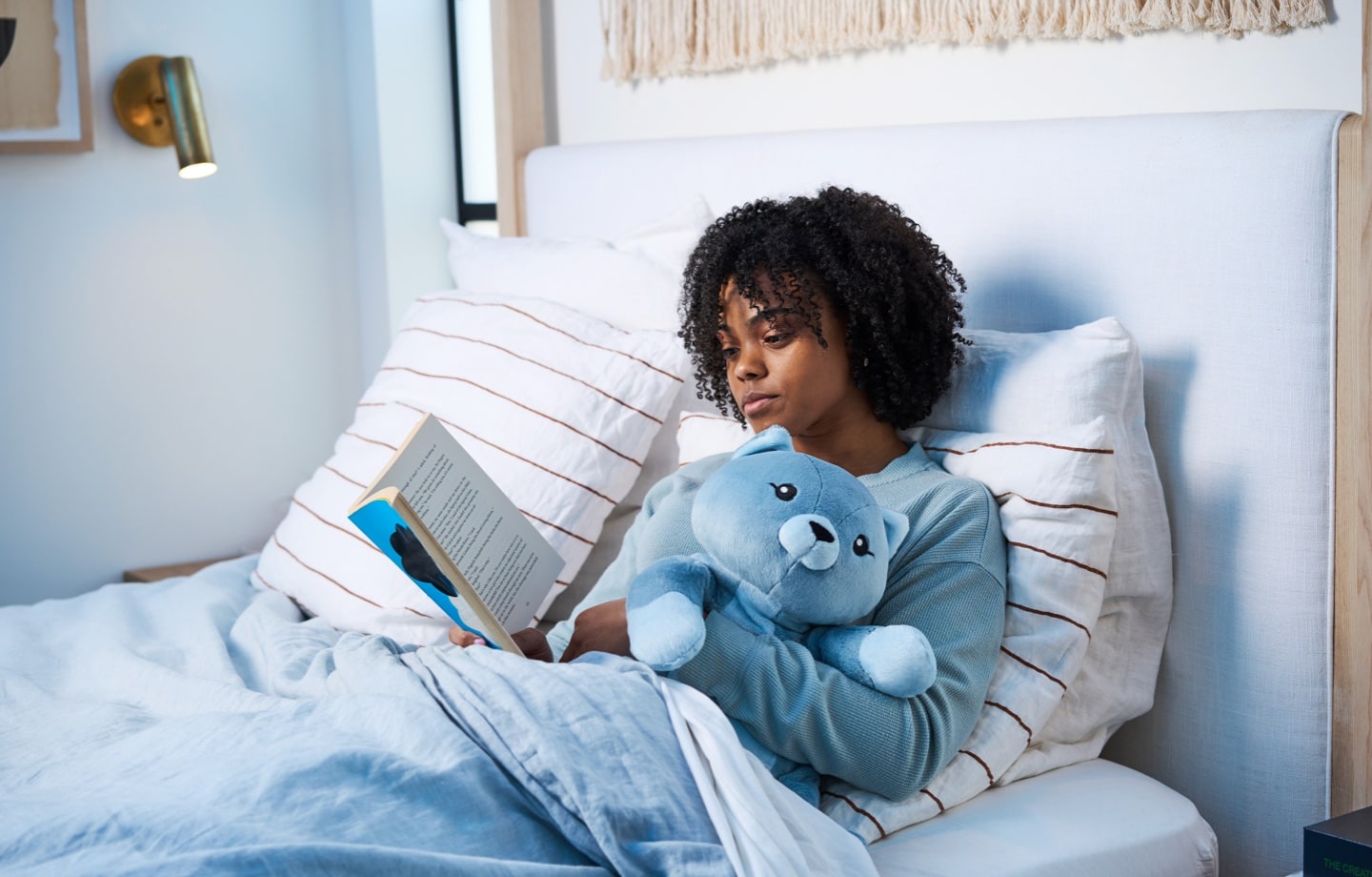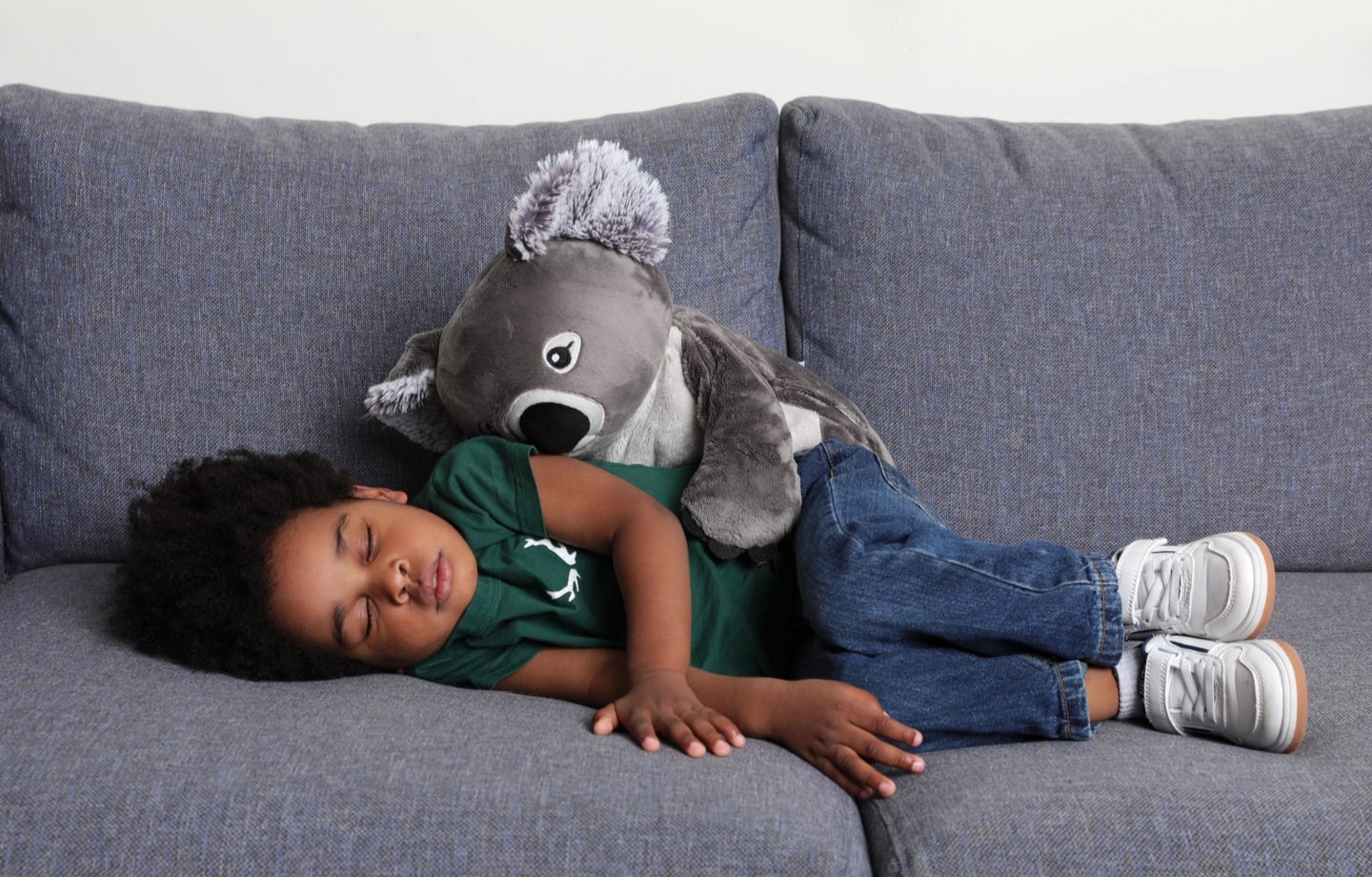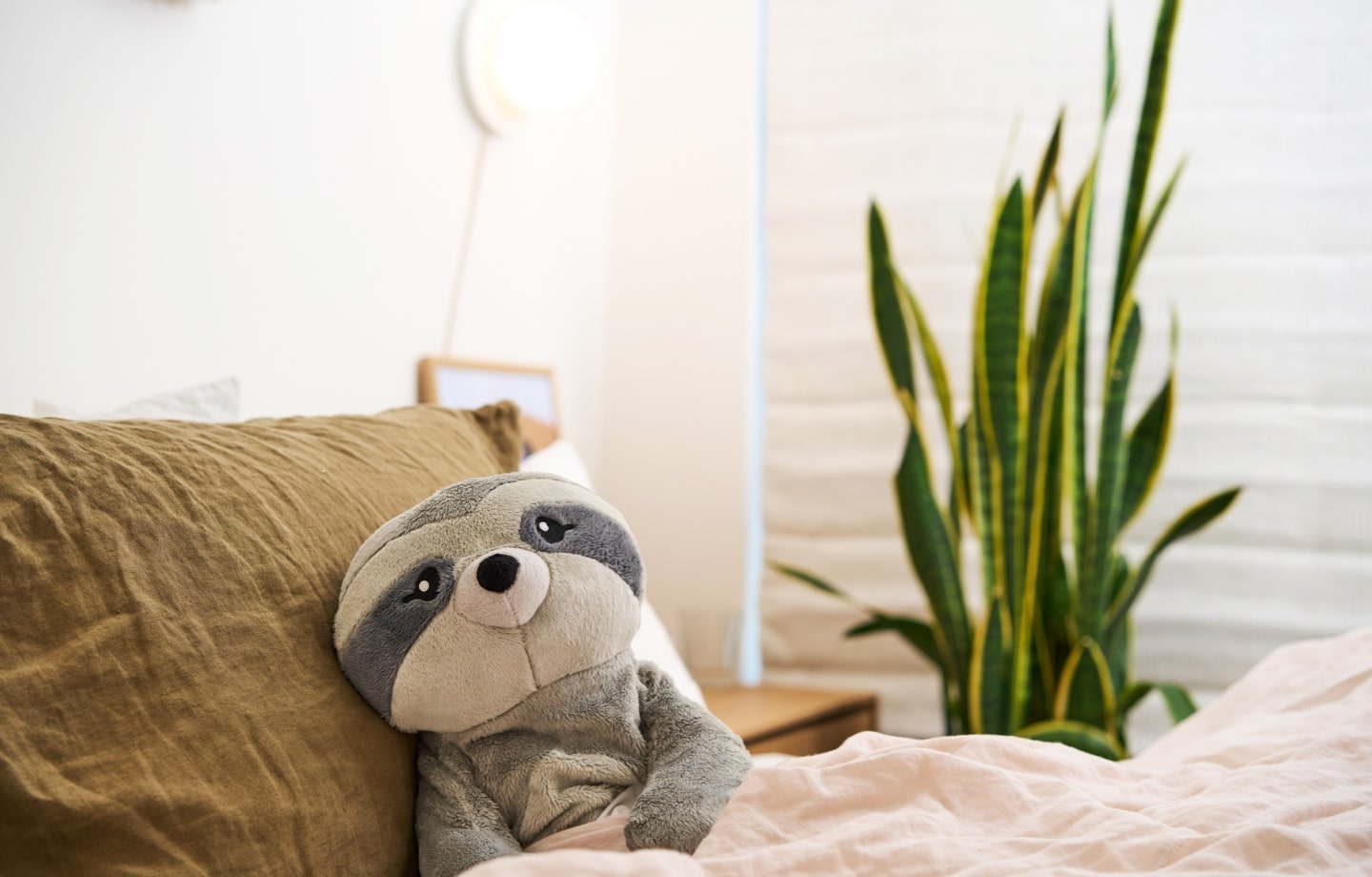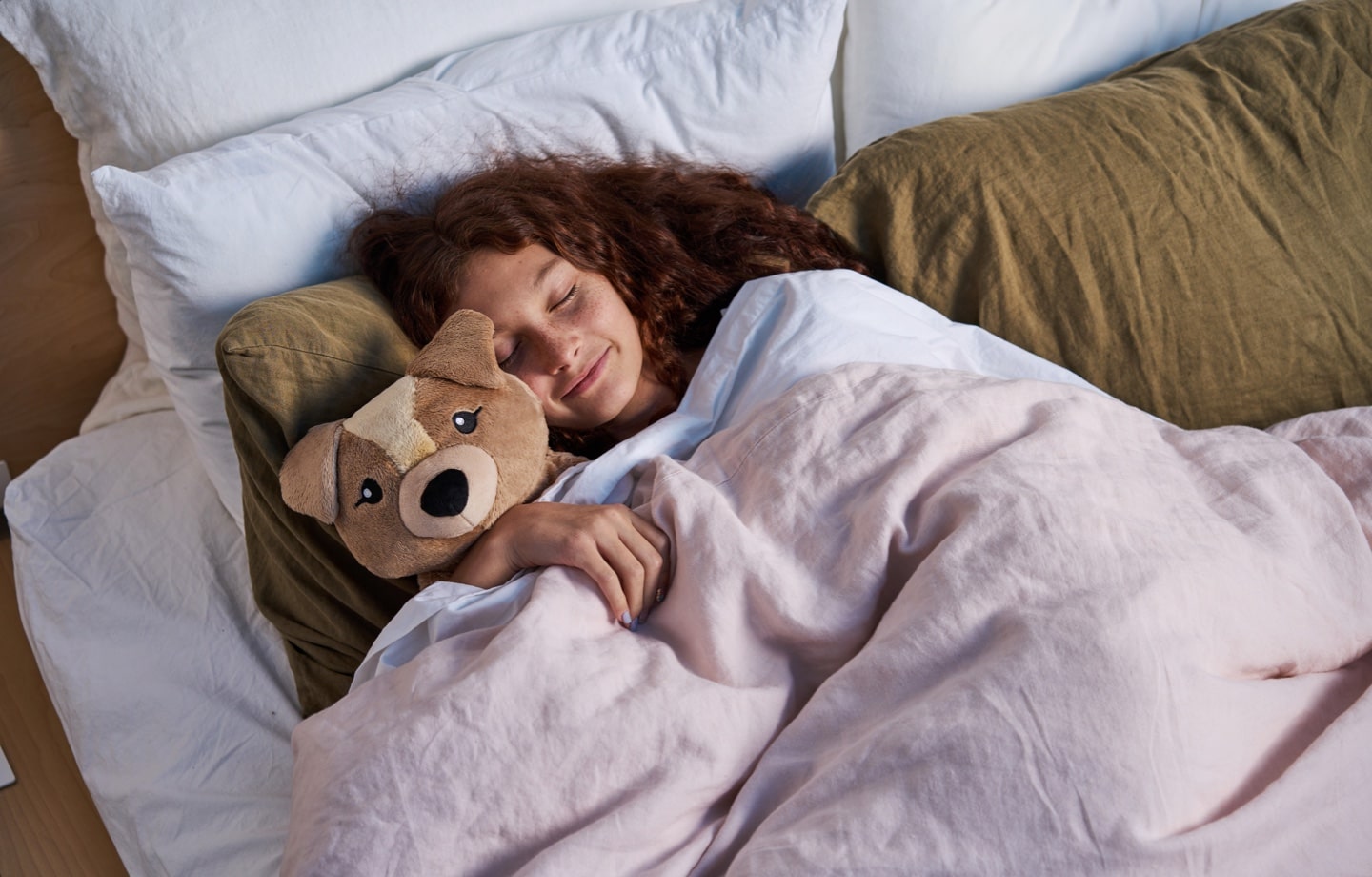Learn how weighted stuffed animals can provide effective relief for children struggling with anxiety through calming deep pressure stimulation.
Many children experience anxiety, whether due to school, social interactions, or changes in their routines. Much of this has been exacerbated by world events outside of their control, like the COVID-19 pandemic and climate change. The U.S. Surgeon General even issued a rare public health advisory in 2022 warning of a growing mental health crisis in American youth.
Helping kids feel secure and less anxious when there’s so much going on around them is no easy job. The brains of young children are still developing and constantly learning new skills, not just physical ones, but emotional ones, too. Sometimes this means that they need a bit of extra help to regulate their feelings and calm their nervous systems.
Things like developing predictable routines, creating a soothing living environment, and even picking the right books to read can all contribute to a sense of comfort and safety. And just like adults turn to certain products (thank you, humidifiers and white noise machines) to create peaceful, sensory-balanced spaces, there are additional tools that do the same for kids, both for sleep and beyond.
Among these tools, one stands out for its unique blend of science and snuggle factor: stuffed animals. Research has long shown that plushies can comfort children and ease them into new or unfamiliar environments. It’s why we so often see kids bring their favorite lovey, well, everywhere. While this applies to any type of plush toy—not just teddy bears!—there’s a relatively new category that can be especially helpful for kids with anxiety or sensory needs.

Read more: 12 Essential Children’s Books
Just like there’s been a growing interest in weighted blankets in recent years, weighted stuffed animals are becoming more popular. However, unlike traditional plush toys, which are usually lightweight and airy, weighted stuffed animals are filled with material that adds a significant heft to them. In turn, these cuddly companions offer both a soft embrace and additional therapeutic benefits.
Weighted stuffed animals work just like their blanket counterparts, but are packaged in a more kid-friendly, adorable shape. They provide deep pressure stimulation (DPS), a technique often used in occupational therapy. This gentle, even pressure mimics the feeling of a comforting hug, which can trigger the release of serotonin, a neurotransmitter that promotes feelings of well-being and happiness. For children, this can translate into a greater sense of security, especially at bedtime or during stressful situations.
“Deep touch pressure is a phenomenon that sort of unlocks the parasympathetic nervous system, which is responsible for the relaxation response in your body,” explains Marina Khidekel, founder of Hugimals. “Your brain starts releasing the calming, happy neurotransmitters that bring a sense of grounding when you have something weighted on you and you instantly start feeling safe and grounded.”
A longtime health and wellness journalist and author of “Your Time to Thrive,” Khidekel worked with psychologists and occupational therapists to develop her line of weighted stuffed animals, taking into consideration not just the heft and feel of the plushies, but also the color and facial features. “A psychologist I worked with told me, which I found really interesting and I didn’t know before, was not to make them smile. When a child isn’t feeling well or not feeling like smiling, it can come off as judgmental or aggressive. So they were like, make them sweet, but make them have neutral facial expressions.”

Read more: Our Favorite Non-Toxic Nursery Essentials
Weighted stuffed animals come in all shapes, sizes, and colors and finding the right one can depend on a child’s preferences. There are ones shaped as animals (both real and imaginary) and beloved storytime characters, ones that are knitted instead of furry, and even ones that heat up for an extra sensory boost. Their fillings can also differ—examples include glass beads, clay, and plastic.
As with any kids’ products, there are extra factors to take into consideration when looking for and using a weighted stuffed animal. Weighted blankets for adults come with guidelines, such as the ideal weight ratio (the general rule of thumb is 10% of the blanket user’s body weight) and when they should be avoided (by anyone with asthma or sleep apnea, for example).
So, too, do regular stuffed animals for children. Per the American Academy of Pediatrics’ (AAP) safe sleep guidelines, plush toys—or any soft, loose objects for that matter—should not go in cribs until babies turn one. In 2022, the organization issued updated best practices, recommending that “weighted blankets, weighted sleepers, weighted swaddles, or other weighted objects not be placed on or near the sleeping infant.”
The filling itself can be another source of concern since many weighted products are filled with beads, which are a choking hazard. Parents should choose a high-quality product with tightly sewn seams. Ease of cleaning is another important factor to consider—kids are messy and being able to toss the stuffed animal in the washing machine is a huge benefit.
When exactly then, is it safe to introduce children to a weighted stuffed animal? There’s currently no official age recommendation, but after testing, Khidekel and her experts decided on a minimum of two years old. But every child is different, so parents should use their best judgment when deciding whether or not their child is ready for one. “You know your child and how much weight they can take and if they can easily get the animal off of them or not,” she says.
While most probably think of stuffed animals as a children’s plaything, the weighted ones have become popular with older kids and even adults. “A lot of college students use Hugimals when they’re in the dorms away from home for the first time. I read all of the gift messages that come through on our site, and I see a lot of messages from moms to their college-age kids saying, ‘I can’t be there to hug you but this is going to give you hugs.’ It’s the sweetest thing.”

Read more: 4 Ways Pets Positively Impact Child Development
Have feedback on our story? Email [email protected] to let us know what you think!

Shop Pillows
The Essential Organic Pillow Collection
Gentle, breathable, non-toxic support.







